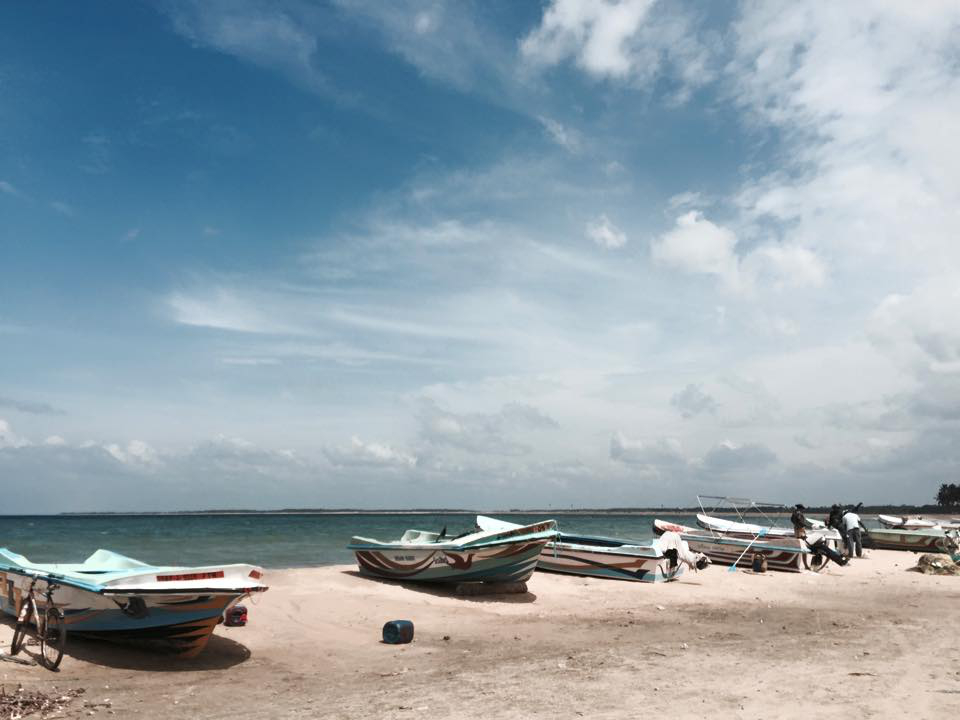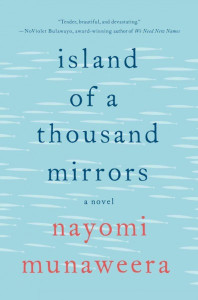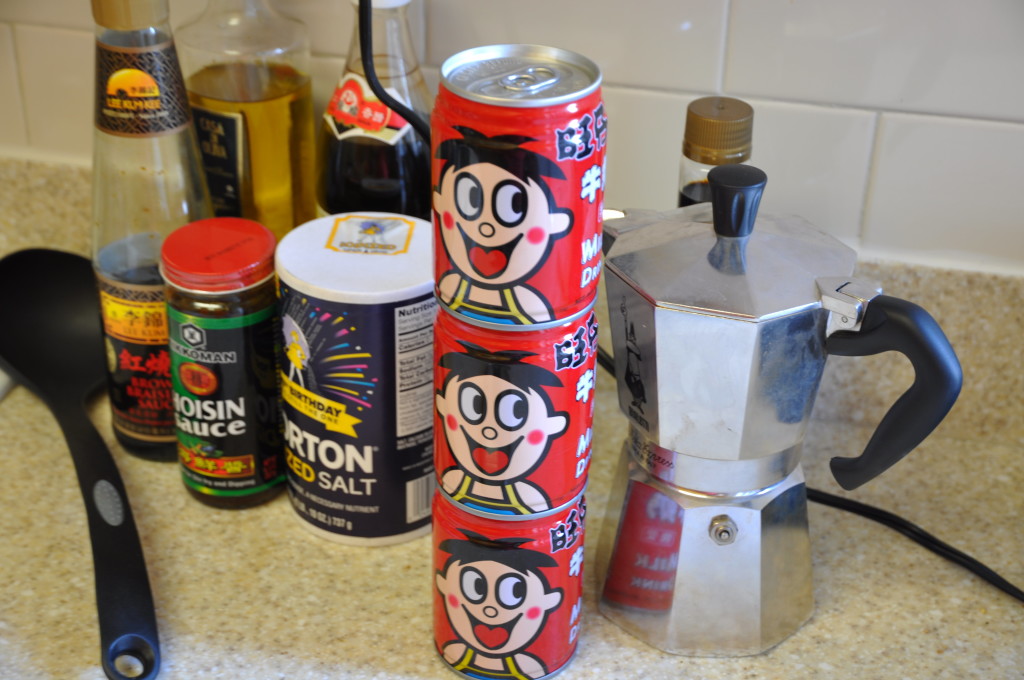Munaweera’s debut novel depicts the psychic, political and sexual spaces between Sri Lanka and Los Angeles.

January 21, 2015
Much of what’s written about South Asian countries charts natural and manmade disasters. One of these, the Sri Lankan Civil War — which claimed the lives of an estimated 80,000 to 100,000 people between 1983 and 2009 — is the subject of Island of a Thousand Mirrors. Nayomi Munaweera’s debut novel narrates the war through the eyes of two young women, one Tamil, one Sinhalese.
From the first sentence, a beautifully rendered sex scene involving a ghost, the reader is clearly in for an intimate portrait of violence, family and place. Munaweera’s lilting prose takes the reader through a family epic across time and continents. She unfurls the horror of war, rape and societal trauma, as well as the beauty and awkwardness of adolescence.
“In these myriad ways, we carved out our lives in Los Angeles. Yet falling asleep was often an act of travel,” writes Munaweera. She places characters across radically different spaces: Sri Lanka’s sparse, war-ravaged north, the tropical capital of Colombo and the sterile, sunnyside pools of Los Angeles. The novel alternates between the story of the Yasodhara, a Sinhalese girl raised in Los Angeles, and a young Tamil village girl, Saraswathi, who dreams of being a math teacher but is brutally forced into the trenches of the Tamil Tigers.
When their worlds violently collide, we bear witness to the fallacy of wartime logic. Neither the Sri Lankan Army nor the Tamil Tigers is absolved from bloodshed. All civilians are in their crosshairs. It seems that love, in its purest and simplest forms, cannot thrive.
Until Munaweera beckons us to return to the place where all roads in Sri Lanka must end — the ocean.
In an interview with Open City, Munaweera discussed the spaces of her novel — the physical, the psychic, the political and the sexual.
In your novel, you paint multiple landscapes, whether in Sri Lanka or in the US, with a deft hand. How do you navigate physical space in the novel?
Part of writing this book was juggling these different locations. I had to consciously and largely subconsciously evoke what those different places all felt like. A moment where that’s really apparent is when the family moves from Sri Lanka to Los Angeles. There’s a completely different sense of space. They’re coming from the tropics, the air is different, the feeling of distance, space, the sky; all of that is very different.
Something that people have really commented upon, is that [in the book] the north of Sri Lanka is a much more barren place, and wrapped in the civil war. It’s very different from Colombo which is very tropical, very green. The voices of the two characters reflect that — Colombo is teeming, its multitudes of things going on. But in the North, everything is much more sparse. It reflects the vegetation, the landscape, but also the civil war. So much of it is subconscious, so I wanted to write how those two places felt to me.
You write about violence unsparingly, but something I loved was how you write about the sensuality in the smallest moments with that same openness. How do you write between the macro-political stuff and the intimate?
The landscape is drenched in that history, that recent history that’s being ignored. Sri Lanka is such an old place, my partner and I visited these ancient cities, these 2500 year-old capitals. As a writer, oh shit, I have shit loads of ghosts around. Sometimes I’m channeling, that’s a very real feeling. I don’t know if it’s real, but I feel very much like a conduit.
The prologue is deeply sensual, sexy. That’s when I was like, I need to read this book. I love reading sex scenes. How do you negotiate sexiness? What space does sexiness have in a South Asian novel?
I love writing them I’m talking about blood and death, so it’s nice to also write love and desire and lust. It’s just pleasurable to write.
Sri Lanka is such an old place, we visited these 2500 year-old capitals. As a writer, I have shit loads of ghosts around.
My sister visited Sri Lanka and said people could hold hands, and we were like, whoa! In Bangladesh, maybe some folks are holding hands, but it’s definitely still not the norm.
It’s so interesting to hear another South Asian from another South Asian country say that Sri Lanka is permissive. The most annoying thing, for all of us, is the patriarchy. Not having agency the way I do in America. I have to be strict, so no one follows me down the road, says bullshit to me. So many people don’t like my prologue, because it’s so sexual. An older statesmen from Sri Lanka said after he read the prologue he couldn’t read it. But then he went back to it, he loved it.
How much time have you spent in Sri Lanka?
I grew up in Nigeria, and every year we’d go back for a month. So I’ve actually spent a lot of time in Sri Lanka.
What do you connect with you when you’re there?
A lot of that is childhood. Years and years of going back. Just being in the water, sensory memories, evoking moments from when I was there. I did a lot of research, but I didn’t live there while I was writing the book. We went back to Sri Lanka all through the war years, but a lot of it is just sensory memory. What does it feel like, to be there? It deals with migration, immigration, exile — what does that feel like? Isolation and separation from your culture, all of that.

When you’re writing a book like this, you have to answer to lots of different folks in the diaspora. You had two publications in India, now this one. Do you feel you have to answer to your people?
It’s a complicated question. The way the book is received in Sri Lanka vs. the way it’s received in India vs. the US, everyone’s take is really different. The reception in Sri Lanka for the most part has been good, that was a powerful thing for me, because being a diasporic writer, you’re always concerned — am I exploiting these people, am I getting it right? You have questions about authenticity.
At first I couldn’t get it published here, but in a way it’s more powerful that it came out there first. Of course there were pro-government papers who wrote that I this book shouldn’t have been written, because the conflict is ancient history. (laughs) Very personal attacks, and how writing about violence and conflict engenders more violence.
How did you feel about being written off?
The push in Sri Lanka officially is to not talk about violence. But journalists get disappeared. So I was scared for a day or two, am I going to get a knock on my door? What’s going to happen? I’m lucky I have an American passport, which thankfully offers some protection. If I was living as a Sinhalese person, especially as a Tamil person, I wouldn’t have been safe. In India, they really focused on the politics and wanted me to make a statement against the Sri Lankan government. In the US, there’s even,“Where’s Sri Lanka?” or “That’s so beautiful.” They want to talk about the arranged marriage crap, but in South Asia no one cares.
Everyone has a different agenda. There’s a whole contingent that calls the book Pro-Tamil. That’s jarring to me.
The push in Sri Lanka officially is to not talk about violence…. So I was scared for a day or two, am I going to get a knock on my door?
As a writer, reader and feminist, I’m interested in how women’s bodies become sites of violence in the context of war. In Bangladesh, the women raped during war were called the birangona, war heroines, as if a new language was forced into being after the war. Do you think violence was gendered so that women had a parallel yet acutely different experience? Or was it a collective, unified struggle?
This book I just read by Rohini Mohan, The Seasons of Trouble, changed everything for me. She has these interviews, and one was with a young woman who used to be a Tiger who is talking to an ex-Tiger man. “The woman says, I saw the Sinhalese soldiers rape Tamil women” in Sri Lanka — she consciously used the word rape, because in Sri Lanka you euphemize rape, as in “he destroyed her honor” or “he insulted her” — and the guy responds, “Well that’s kind of our fault, because we had women in the conflict, whereas the army knows better, they didn’t put their women in the conflict.” So, that says a great deal, what we’re talking about is female bodies as a weapon of war, the crime of rape, rape as a weapon of war, is completely not talked about. In L.A., folks in the Sri Lankan community have told my parents, “I stopped reading when a woman got raped in the book, because that would never happen in Sri Lanka” or “This book is trashy, because I know this didn’t happen.”
Wow. So, complete denial?
It’s not just the rape, it’s also that her entire community has silenced her, said it is her fault.
The scene where the young schoolgirl is attacked and forced to prove she’s Sinhalese by reciting Buddhist slokas stayed with me for a long time. How did you envision this depth of violence?
My writing is not easy writing, I’m finishing up my second book right now, and it’s this painful process of excavation. The subjects I’m taking on calls for this. It’s not fluffy, happy stuff. I’m writing about the war, I have to do that. If I could, probably my mental health would be better. But part of it is understand how these horrible things have happened. When talking about the Sri Lankan civil war, my writing was concerned with probing with what would that feel like. What happens in that part is incredibly painful.
A large question with Saraswati — what does it take to create a suicide bomber? I was obsessed with that question. You start to do research and you’re like, oh, horror and terror, and not having choices is what creates that. If you’re going to write that person’s experience, you have to go there.
The project of fiction, if you’re going to write about painful things, you’re going to have to feel it. As a reader you’re affected by that scene; as a writer I was just as connected. The reader can always tell if it’s not authentic, they can feel if you didn’t really go there. Readers will tell me, “This scene made me cry.” That’s the fiction I love, the kind that just destroys you.




